
 i_need_contribute
i_need_contribute
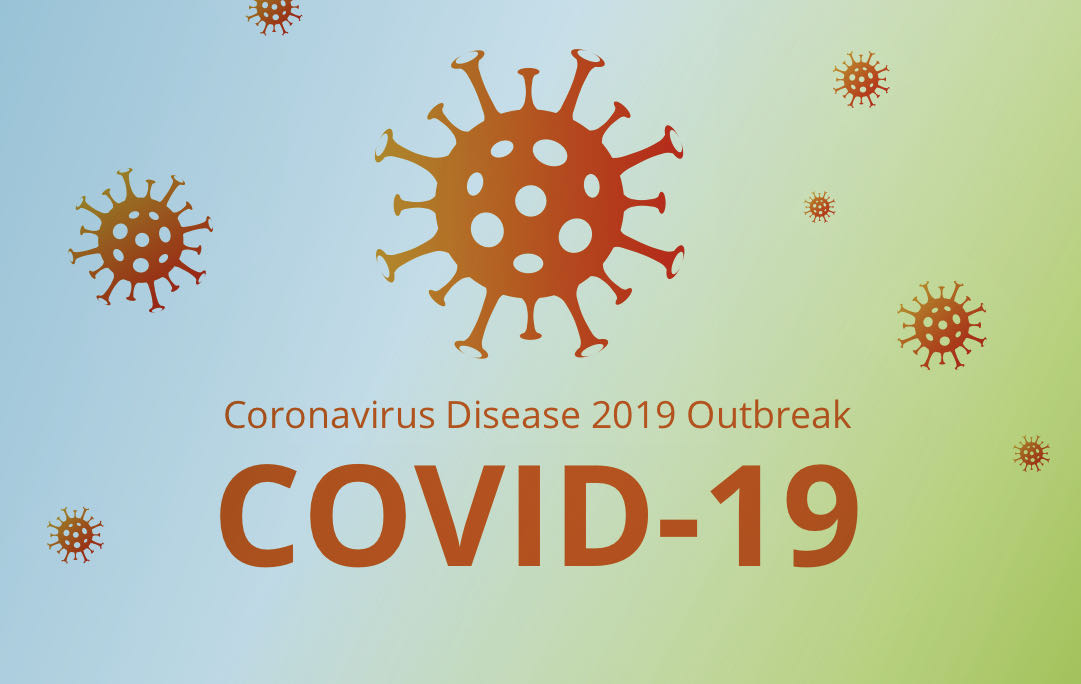



|
Country, |
Total |
New |
Total |
|
World |
6,363,196 |
+103,946 |
377,191 |
|
1,859,323 |
+22,153 |
106,925 |
|
|
529,405 |
+14,556 |
30,046 |
|
|
414,878 |
+9,035 |
4,855 |
|
|
286,718 |
+209 |
27,127 |
|
|
276,332 |
+1,570 |
39,045 |
|
|
233,197 |
+200 |
33,475 |
|
|
198,370 |
+7,761 |
5,608 |
|
|
189,220 |
+338 |
28,833 |
|
|
183,765 |
+271 |
8,618 |
|
|
170,039 |
+5,563 |
4,634 |
|
|
164,769 |
+827 |
4,563 |
|
|
154,445 |
+2,979 |
7,878 |
|
|
105,159 |
+5,471 |
1,113 |
|
|
91,705 |
+758 |
7,326 |
|
|
90,664 |
+3,152 |
9,930 |
|
|
87,142 |
+1,881 |
525 |
|
|
83,017 |
+16 |
4,634 |
|
|
72,460 |
+2,964 |
1,543 |
|
|
58,517 |
+136 |
9,486 |
|
|
58,433 |
+1,523 |
40 |
|
|
49,534 |
+2,381 |
672 |
|
|
46,545 |
+103 |
5,962 |
|
|
43,403 |
+847 |
240 |
|
|
39,994 |
+896 |
3,394 |
|
|
37,814 |
+272 |
4,403 |
|
|
35,292 |
+408 |
24 |
|
|
35,192 |
+635 |
266 |
|
|
34,357 |
+1,674 |
705 |
|
|
32,700 |
+200 |
1,424 |
|
|
30,871 |
+9 |
1,920 |
|
|
30,493 |
+1,110 |
969 |
|
|
27,762 |
+719 |
220 |
|
|
26,940 |
+467 |
1,641 |
|
|
26,384 |
+1,399 |
1,005 |
|
|
25,062 |
+72 |
1,650 |
|
|
24,165 |
+379 |
1,074 |
|
|
24,012 |
+340 |
718 |
|
|
19,398 |
+141 |
1,276 |
|
|
18,638 |
+552 |
960 |
|
|
17,572 |
+287 |
502 |
|
|
17,415 |
+564 |
556 |
|
|
17,169 |
+98 |
285 |
|
|
16,884 |
+33 |
892 |
|
|
16,733 |
+2 |
668 |
|
|
15,750 |
+545 |
265 |
|
|
13,837 |
+374 |
344 |
|
|
12,223 |
+786 |
50 |
|
|
11,871 |
+473 |
19 |
|
|
11,699 |
+30 |
576 |
|
|
11,503 |
+35 |
271 |
|
|
11,430 |
+18 |
244 |
|
|
11,308 |
+450 |
41 |
|
|
10,578 |
+416 |
299 |
|
|
9,982 |
+390 |
313 |
|
|
9,513 |
+119 |
661 |
|
|
9,492 |
+210 |
139 |
|
|
9,302 |
+34 |
321 |
|
|
8,446 |
+6 |
236 |
|
|
8,360 |
+109 |
305 |
|
|
8,070 |
+189 |
36 |
Source:https://www.worldometers.info/coronavirus/

A Rohingya refugee in the Kutupalong camp in Bangladesh in 2018.Credit...Rebecca Conway for The New York Times
A Rohingya Muslim died of the coronavirus in Bangladesh on Monday night, becoming the first such fatality in the refugee community, an official in the country said.
The 71-year-old man died at an isolation center in Ukhiya, a town near the refugee camps, said Dr. Abu Toha, a health department coordinator of the Office of the Refugee Relief and Repatriation Commissioner in Cox’s Bazar. About a million Rohingya have sought shelter in the camps after being forced from their homes by the military in neighboring Myanmar.
The United Nations refugee agency said on Tuesday that there were 29 confirmed Covid-19 cases in the camps’ refugee population as of May 31, and 702 cases with 13 deaths in the wider Cox’s Bazar district. The agency said that its staff was “working round the clock” to conduct contact tracing, care for refugees and ensure that testing was available to them.
The first case of the coronavirus was confirmed in the Rohingya refugee camps in mid-May, raising fears about how quickly disease might ravage a community confined to warrens of tents and shacks where social distancing is impossible.
About 15,000 Rohingya are being quarantined after clusters of the virus were found in the Kutupalong refugee camp, which is considered the world’s single largest refugee settlement. The man who died on Monday night lived in Kutupalong.
The Bangladeshi government has imposed a lockdown in Cox’s Bazar, the district where the Rohingya camps are located, making it difficult for aid workers to reach vulnerable communities. Mobile internet service has also been severed.
So desperate are the Rohingya that successive waves have boarded rickety boats in hopes of making it to Malaysia, where they form an underclass of undocumented laborers. But with Southeast Asian governments turning back the boats amid their own coronavirus lockdowns, dozens of Rohingya are believed to have died at sea as they drifted for weeks with nowhere to dock.

A car was stopped for screening outside a plant in Springdale, Ark., on Wednesday.Credit...Beth Hall for The New York Times
Michigan’s governor on Monday lifted a stay-at-home order for the state’s 10 million residents, as several other U.S. states announced steps to reopen businesses and public spaces.
Effective immediately, Gov. Gretchen Whitmer said, groups of 100 people or less will be allowed to gather outdoors while social distancing. Restaurants will also be able to open starting Monday, though tables will be required to be six feet apart.
And in New York State, Gov. Andrew M. Cuomo voiced strong concerns that days of crowded and chaotic protests in New York City against racism and deadly police brutality could set off a second wave of coronavirus infections.
Mr. Cuomo said he did not want the city’s plan to reopen on June 8 to be jeopardized. “Protest, just be smart about it,” he said. The city’s public health officials urged anyone who does protest to wear face coverings, use hand sanitizer, maintain social distance and get tested for the virus.
The pandemic is persisting on a stubborn but uneven path in the United States, where more than 100,000 Americans have died of Covid-19, the disease caused by the virus. Just as some states were making cautious plans to open, curfews were imposed in dozens of cities over the weekend because of the protests that erupted across the country after George Floyd died in police custody in Minnesota.
Many of the nation’s governors have spoken in support of the protests, but President Trump, who has been besieged by protests and fires outside the White House, lashed out at them on Monday, warning them that they would look like “jerks” if they didn’t order demonstrators arrested and imprisoned.
Here’s what else is happening around the United States:
A California corrections officer who had tested positive for the coronavirus died on Saturday, state officials said. Danny Mendoza, 53, had been a corrections officer for 24 years, most recently working at the California Rehabilitation Center in Riverside County. More than 300 corrections officers have tested positive for the coronavirus, but Mr. Mendoza’s is believed to be the first death. Ten inmates in California state prisons have died of Covid-19, all of whom were held at the California Institution for Men in Chino.
In New York, New Jersey and Connecticut, case numbers have plunged significantly in recent days. New Jersey’s governor said that retail stores there should be able to reopen on June 15, with limits, and that restaurants could offer outdoor dining.
Louisiana’s governor said the state would begin easing restrictions on Friday, allowing venues including churches, malls, bars and theaters to increase capacity to 50 percent, although distancing requirements will be maintained. The mayor of New Orleans said on Twitter that the city would not follow the state’s lead.
Despite ongoing outbreaks in parts of Mississippi, the governor announced that all businesses could reopen and that travel restrictions had been lifted. Social-distancing rules remained in effect.
The Midwest is still troubled by persistent outbreaks. Virus hospitalizations are on the rise in Wisconsin. New cases are consistently high in Minnesota, particularly around the Twin Cities, where health officials have warned that the protests there could increase the risk of infection.
China said on Tuesday that Wuhan, the city where the pandemic began, had reported no new symptomatic or asymptomatic infections on Monday for the second straight day. Sunday was the first day that both tallies were zero since the city’s outbreak began.
Separately, the European Chamber of Commerce in China issued a report decrying the rapid proliferation in recent years of long-haul international flights to and from second-tier and third-tier Chinese cities. That includes Wuhan, where 19 flights left the city in January alone carrying about 4,000 travelers to New York or San Francisco, according to VariFlight, an aviation data company based in China.
The pandemic has resulted in the temporary suspension of almost all of these services, according to the chamber, which focused its analysis on flights last year and prepared most of its report before the pandemic began. Philippe Bardol, the chairman of the chamber’s aviation and aerospace working group, declined to discuss Wuhan specifically.
A New York Times analysis in March found that international flights from Wuhan and other Chinese cities continued as normal through much of January, even as the outbreak moved across the country. Thousands of people flew out of Wuhan to New York, Sydney, Bangkok and other cities. (Bangkok is where the first known overseas case appeared in mid-January, in a 61-year-old woman who had traveled from Wuhan despite having a fever, headache and a sore throat.)
The pandemic has brought new attention to the steep rise in recent years of nonstop flights to the United States from an ever-lengthening list of cities.
Rapid growth in long-haul flights from second-tier and third-tier Chinese cities before the pandemic meant that people who used to change planes in Beijing or Shanghai could fly straight from Europe into smaller cities instead. Mr. Bardol said that eroded the number of passengers and profitability for European carriers on their routes from Europe to Beijing or Shanghai.
Smaller Chinese carriers tend to be headquartered in second-tier or third-tier cities, which often own stakes in the carriers as well and subsidize their new international flights. Before the pandemic hit, these cities wanted more international flights so as to increase tourism and make themselves more viable candidates when big companies chose where to locate their offices.

Moscow began easing its restrictions after nine weeks under lockdown.Credit...Sergey Ponomarev for The New York Times
A referendum on changes to Russia’s Constitution that would allow President Vladimir V. Putin to remain in office for another 16 years was rescheduled for July 1, after a long delay because of the pandemic.
Russia is the third hardest-hit country after the United States and Brazil. Moscow, the capital, has accounted for more than 40 percent of total reported infections, which numbered 414,878 on Monday, and more than half the deaths in the country.
To calm concerns that the Kremlin was gambling with public health in pursuit of its political agenda, Anna Popova, the head of the state agency leading efforts against the virus, spoke at a video conference of officials along with Mr. Putin and offered assurances that holding the referendum on July 1 would be safe for the public.
The head of the Central Election Commission, Alla Pamfilova, suggested that the vote could be spread over six days to avoid crowds at polling stations.
Moscow city authorities on Monday also helped to prepare the way for the vote, the centerpiece of the Kremlin’s political plans for the year. After nine weeks in lockdown, Moscow reopened parks, shopping malls, car dealerships and many other businesses but restricted entry to people wearing masks and gloves.
Bad weather and confusion over the rules kept many residents indoors nonetheless, and provoked mockery on social media.
The Metropolitan Opera said on Monday that the pandemic had forced the company to cancel its fall season, thrusting the Met into one of the gravest crises in its 137-year history and leaving many of its artists, who have not been paid since March, in dire financial straits.
The announcement by the Met, the largest U.S. performing arts organization, is sure to be watched closely by other presenters who are trying to gauge when it might be safe to invite audiences back for live performances, and how to survive in the meantime.
The Met, which last performed live on March 11, now hopes to return with a gala on New Year’s Eve after its longest interruption in more than a century. The gap is projected to cost the company close to $100 million in lost revenues, a figure that will be partly offset by lower costs and emergency fund-raising efforts.
A study in contrasts: As theaters around the globe were abruptly shuttered by the pandemic, “The Phantom of the Opera” has been soldiering on in Seoul, South Korea, playing eight shows a week for robust audiences.
The musical, with its 126-member company and hundreds of costumes and props, is believed to be the only large-scale English-language production running anywhere in the world. And it has remained open not through social-distancing measures, but an approach grounded in strict hygiene. (The performances are also a testament to South Korea’s rigorous system of test, trace and quarantine, which has kept the virus largely under control.)
The show’s composer, Andrew Lloyd Webber, is arguing that its approach can show the way for the rest of the industry.

An Ebola treatment center in the Democratic Republic of Congo last year. Credit...Finbarr O'Reilly for The New York Times
A new outbreak of the deadly Ebola virus has flared up in the Democratic Republic of Congo, a country that was already contending with the coronavirus as well as the world’s largest measles epidemic.
Congo’s health ministry said the new Ebola outbreak had killed four people and infected at least two more in Mbandaka, a city of 1.2 million people on the country’s western side. A fifth person died on Monday, according to UNICEF, the United Nations agency for children.
Less than two months ago, Congo was about to declare an official end to an Ebola epidemic on the eastern side of the country that had lasted nearly two years and killed more than 2,275 people. Then, with just two days to go, a new case was found, and the clock was reset.
It is unclear how Ebola emerged in Mbandaka, which is about 700 miles west of the nearly defeated outbreak. Congo has been under travel restrictions to prevent the spread of the coronavirus.
Reported cases of the coronavirus have been mostly limited to the capital, Kinshasa, also in the country’s west. Congo has reported 3,049 cases of the coronavirus, including 71 deaths, but testing is limited so the true scale of the outbreak is unknown.

Customers waited for the opening of a liquor shop in Soweto, South Africa, on Monday.Credit...Michele Spatari/Agence France-Presse — Getty Images
Several countries where the pandemic appears to be ebbing marked the beginning of June by easing restrictions. They included South Africa, which lifted its ban on alcohol sales. A drop in murders and traffic accidents had been attributed to the measure, but bootleggers quickly stepped in to meet demand.
Other measures that went into effect on Monday:
Students were allowed to return to some elementary schools in England, but many parents decided to keep their children home, concerned that the risks remain too high. Schools also resumed in Greece.
A pigeon race involving 4,000 birds marked the reopening of some sports events in Britain, and it was soon followed by a horse race held without spectators.
Beaches in Spain reopened, except those near Barcelona, and the Guggenheim Museum in Bilbao became the country’s first major cultural institution to again allow visitors. Ireland also allowed bathers to return to some beaches.
Cinemas began screening films again in Thailand, although their audiences were limited to 200 people and customers must be separated by at least one empty seat. Portugal also reopened movie theaters along with some other businesses. Bars reopened in the Netherlands, Finland and Norway.
The Adriatic state of Montenegro, which has declared itself free of the virus, reopened its border to foreigners. The prime minister of Pakistan also lifted restrictions on foreign visitors. Lithuania ended a 14-day quarantine requirement for visitors from dozens of countries.
Visitors were allowed into two of Italy’s biggest tourist attractions: the Vatican Museums, including the Sistine Chapel, and the Colosseum.
Source:https://www.nytimes.com/2020/06/01/world/coronavirus-world-news.html
From CNN's Jake Kwon in Seoul
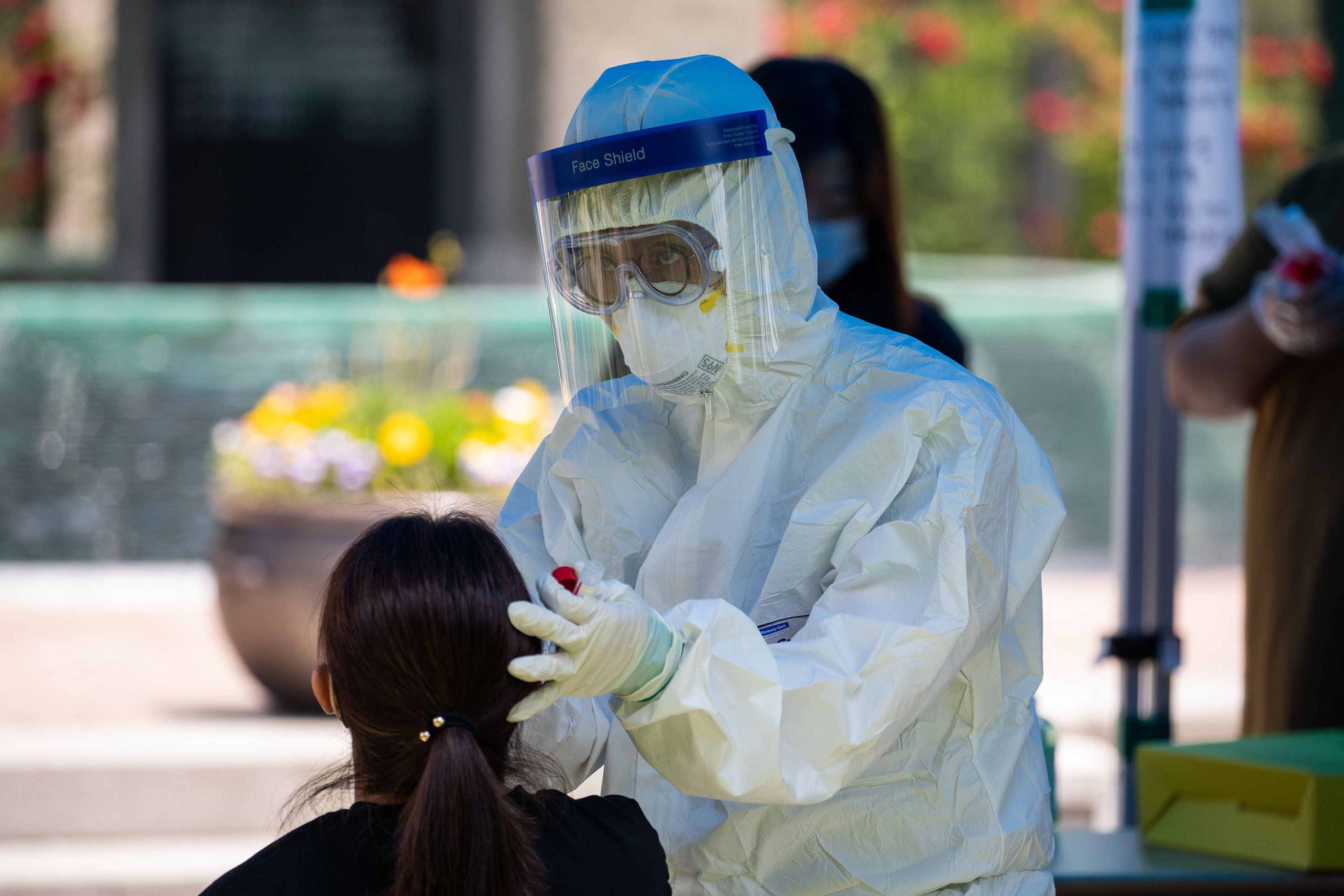
A medical worker collects a sample at a coronavirus testing station in Seoul, South Korea, on May 29. SeongJoon Cho/Bloomberg/Getty Images
South Korea reported 38 new coronavirus cases and one death on Monday, health ministry official Sohn Young-rae said in a news briefing.
Of those, 36 were locally transmitted cases in the capital Seoul.
A cluster of cases came from a group of small churches in Incheon, where 45 people who attended services have now tested positive for Covid-19.
Sohn said the virus spread at the churches because congregations were praying and singing hymns in a small space without wearing a mask.
South Korea has recorded at least 11,541 total cases and 272 deaths nationwide.
New Zealand Prime Minister Jacinda Ardern said today she was "horrified" by George Floyd's death in the US and welcomed peaceful solidarity protests in her country, but noted that protesters flouted coronavirus social distancing restrictions.
"I think I stand with everyone else in being horrified in what we've seen but at the same time, we need to show that and express that solidarity in a way that makes sure we're looking after one another as well," Ardern said in a news briefing.
Ardern said that as a nation, "where we see racism, where we see intolerance, where we see hatred, that we call it out," but also noted the risk of coronavirus infection remains.
"I utterly understand the sentiment, but we are in a global pandemic and I would hate for there to be an outbreak caused by someone who felt really moved to go and share their view and their opinion to then become ill. That's exactly what we're trying to prevent," she said.
From CNN’s Sophie Jeong

Migrant workers are seen at a quarantined dormitory building in Singapore on May 20. Roslan Rahman/AFP/Getty Images
Singapore, which has been dealing with an outbreak of coronavirus infections among its migrant workers, is building new dormitories with improved standards.
By the end of this year, the country plans to create additional space to house about 60,000 workers, the Ministry of National Development and the Ministry of Manpower said in a joint media release.
Longer term, proposed new purpose-built dormitories are to house up to 100,000 workers to replace short to medium-term housing.
“We aim to make dormitory living and design more resilient to public health risks including pandemics, with improved living standards that are benchmarked both domestically and internationally,” the ministries said in the release. “We will take on board lessons learnt from the current COVID pandemic.”
To start, an improved set of standards will be piloted at new quick-build dormitories. Those standards include six or more square meters (64 or more square feet) per resident, 10 or fewer beds per room and at least one toilet, bathroom and sink to five beds, according to the ministries.
Making up a significant portion of the Singaporean workforce, 1.4 million migrant workers live in the city-state -- mostly employed in construction, manual labor and housekeeping. Of these, about 200,000 live in 43 dormitories, according to Minister of Manpower Josephine Teo.
Each dorm room houses about 10 to 20 residents. They share toilet and shower facilities, eat in common areas, and sleep just feet away from each other. It's nearly impossible to conduct social distancing.
As of Monday, Singapore confirmed 408 new coronavirus cases -- all of whom were among work permit holders staying in dormitories. This brings the country’s total cases to 35,292, of which 33,027 (93.6%) are dorm residents.
From CNN Health’s Jen Christensen
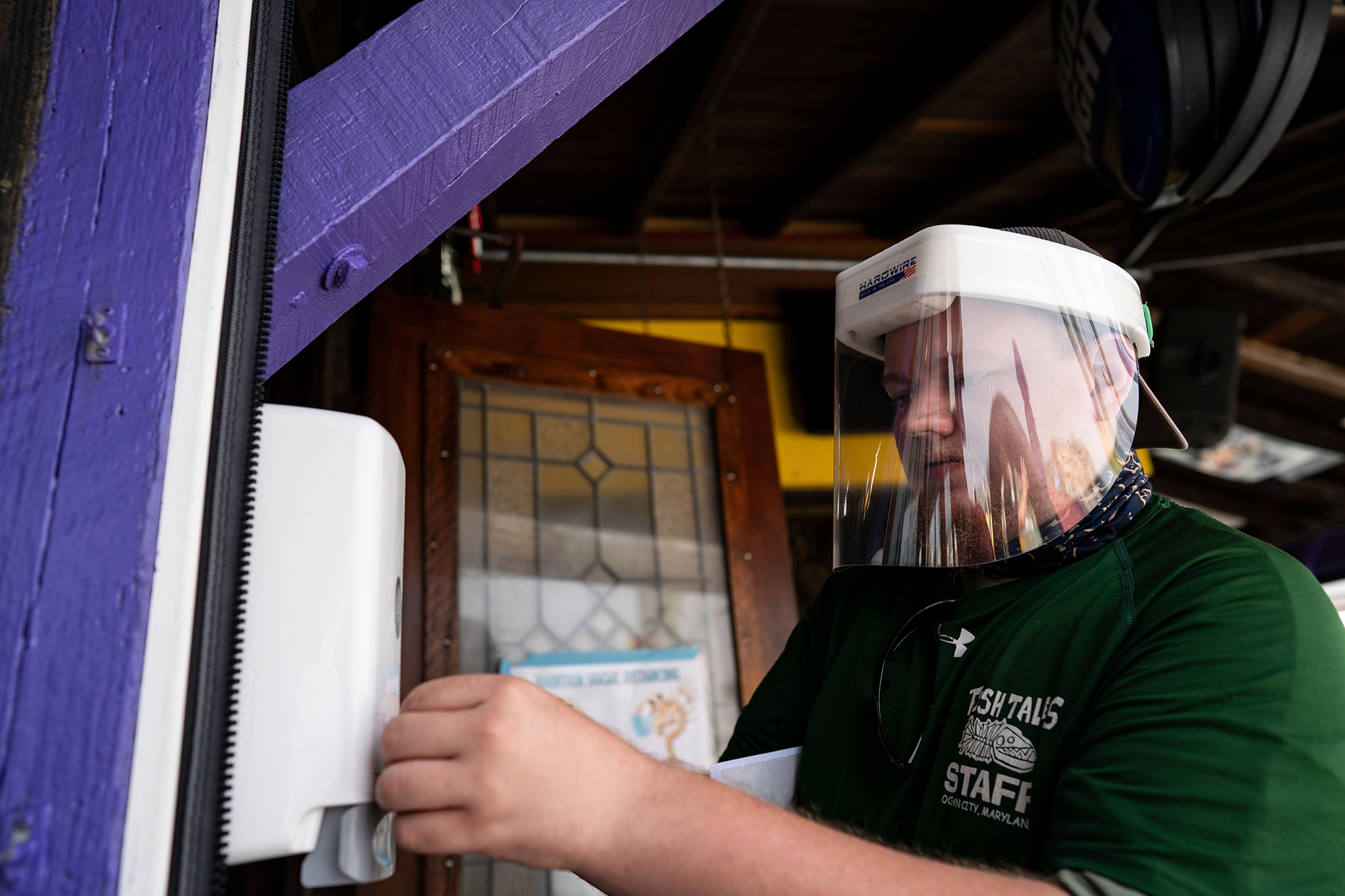
A restaurant employee with a hand sanitizer dispenser in Ocean City, Maryland, on May 29. Alex Edelman/AFP/Getty Images
The US Food and Drug Administration will expand the kinds of companies that can make hand sanitizer while demand continues to outpace supply during the Covid-19 pandemic.
The agency issued temporary guidance Monday that will allow some ethanol producers to make hand sanitizers -- even if that means allowing in some small amounts of impurities, the agency said on its website.
In April, the FDA tightened restrictions on the use of ethanol in hand sanitizer.
Why it's significant: Some small hospitals are having a hard time buying supplies and consumers can only buy hand sanitizer in small quantities -- if they can find it at all -- the FDA said. Since good hand hygiene is key to preventing the spread of Covid-19, the FDA said it is working with the ethanol industry to make sure that harmful impurities aren’t introduced into the hand sanitizer during manufacturing.
What's the concern: The process to make ethanol requires fermentation and distillation. Neither process should taint the final hand sanitizer product, but if it is made in the same plant as one that makes fuel or technical-grade ethanol, the hand sanitizer could become contaminated with gasoline or benzene. Exposure to either could potentially cause cancer.
The FDA said that in looking at the data, it believes some level of certain impurities can be tolerated for a relatively short period.
What the FDA says: During the pandemic, there needs to be a “proper level of flexibility” in the rules.
From CNN's Yoko Wakatsuki in Tokyo
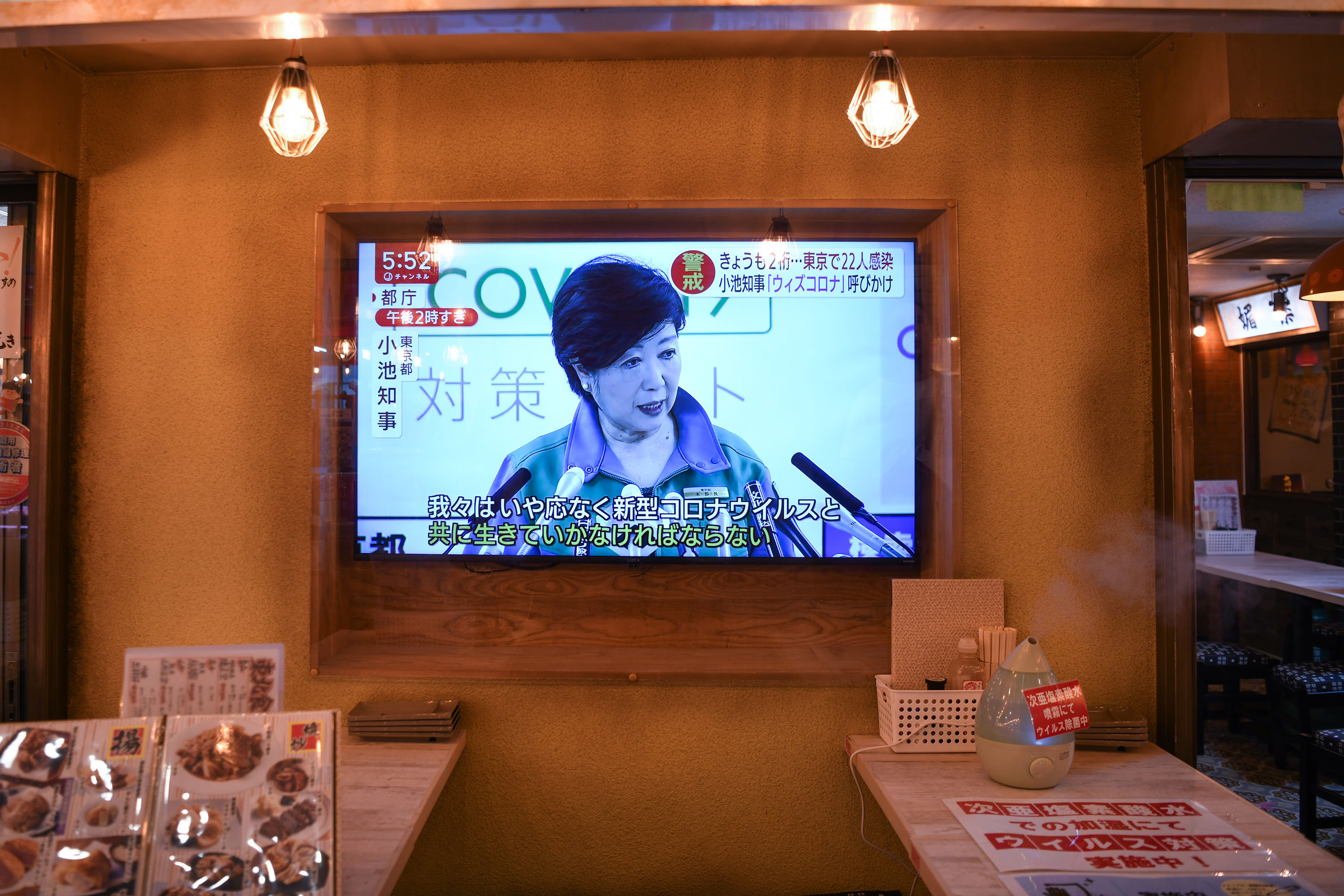
A television screen in a Tokyo hotel displays a news conference held by Gov. Yuriko Koike on Friday, May 29. Noriko Hayashi/Bloomberg/Getty Images
Japan reported 37 new coronavirus cases and two deaths on Monday, its Health Ministry said.
The total number of recorded infections in the country has now reached 17,642, including 712 from the Diamond Princess cruise ship. At least 907 people have died, with 13 from the cruise ship.
In the capital Tokyo, 13 fresh coronavirus cases were reported Monday, and no deaths. Gov. Yuriko Koike said more than half of the new cases in the city are people in their 20s, and many of the infections came from the night entertainment business.
Tokyo moved into step 2 of its recovery plan this week, which eases restrictions for shopping malls and sports facilities. Night clubs, bars and karaoke are still shut, however, and restaurants have been requested to close by 10 p.m.
The southern city of Kitakyushu, which has seen a sizable community spread over the past 10 days, recorded 16 new infections on Monday.
From CNN's Vanesse Chan
China reported five new coronavirus cases and no additional deaths on Monday, according to the country's National Health Commission.
All of the new cases are imported, with two in Sichuan province, one in Shanghai, one in Guangdong, and one in Shaanxi.
Another 10 asymptomatic cases were also reported.
A total of 83,022 coronavirus cases have been reported in China. The official death toll stands at 4,634.
More than 78,300 patients have been discharged from hospital so far. Some 371 asymptomatic patients are also still under medical observation.
From CNN's Tami Luhby
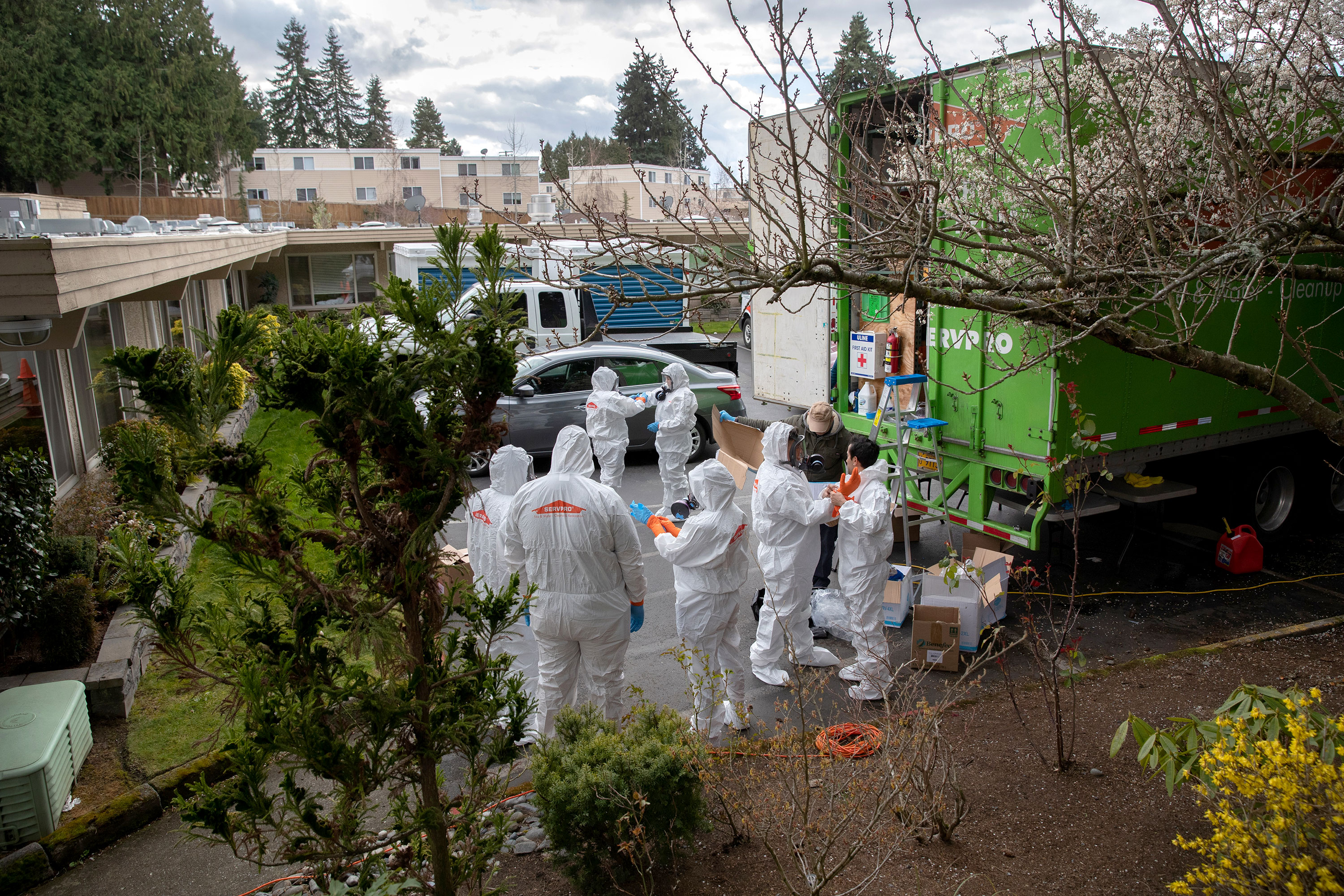
A cleaning crew prepares to enter the Life Care Center in Kirkland, Washington on March 12. John Moore/Getty Images
Nearly 26,000 nursing home residents have died from coronavirus in the United States, according to federal data released on Monday.
One quarter of nursing homes had at least one case, and one in five had at least one death, according to the federal Centers for Medicare and Medicaid Services.
The cases were more prevalent in poorly rated facilities, which typically have weaker infection controls and fewer staffers per resident.
The report marks the first nationwide government tally showing the impact of the pandemic on nursing homes, which have been hit especially hard by the outbreak. More than 60,000 residents have tested positive for the virus.
The data, however, is not a complete picture, said Seema Verma, the agency's administrator. It covers only about 80% of nursing homes, and it doesn't include assisted living facilities. Also, CMS did not issue the requirement that nursing homes provide this information to the federal government until May 1, though Verma said that most facilities likely reported cases and deaths before that date, as well.
Source:https://edition.cnn.com/world/live-news/coronavirus-pandemic-06-02-20-intl/index.html
Global infections from Covid-19 stand at 6,266,193 with deaths at 375,554, according to the Johns Hopkins University tracker.
South Korea will begin trialling QR codes as part of its track and trace efforts to contain the virus. From 10 June, visitors to nightclubs, bars, karaoke clubs, daytime discos, indoor gyms that hold group exercises and indoor standing concert halls will be required to use an app that generates a one-time personalised QR code that can be scanned at the door. It follows difficulties tracing potential infections from last month’s Seoul nightclubs cluster of 270 cases, after people gave false or incomplete information.
Pakistan’s prime minister, Imran Khan, has defended his decision to lift almost all lockdown measures because of economic losses, as cases rise. In a televised address, Khan said his government could not afford to continue giving cash handouts to the poor on such a large scale. He urged people to act responsibly but said more infections and deaths were inevitable. “This virus will spread more. I have to say it with regret that there will be more deaths,” Khan warned. “If people do take care they can live with the virus.”
New Zealand’s PM, Jacinda Ardern, has said restrictions may be eased again sooner than planned as the country was “ahead of schedule” in tackling Covid-19. Cabinet will decide next Monday whether to move to level-1 restrictions – the most lenient – two weeks ahead of when the government had planned to make that decision. New Zealand has had no Covid-19 cases for 11 straight days. Level-1 is thought to only involve border restrictions.
The World Health Organization has warned that the increased use of antibiotics to combat the pandemic will strengthen bacterial resistance and ultimately lead to more deaths during the crisis and beyond. WHO director general, Tedros Adhanom Ghebreyesus, said on Monday a “worrying number” of bacterial infections were becoming increasingly resistant to the medicines traditionally used to treat them.
The risk of Covid-19 infection could double if the 2-metre rule is reduced in UK, a study part-funded by the WHO and published in the Lancet has found. Last week, Boris Johnson said he hoped to “be able to reduce that [2-metre] distance”, to make it easier to travel on public transport and boost the hospitality industry.
Deaths in Mexico passed 10,000 as the WHO warned that Central and South America had become “intense zones for transmission of this virus” and had not reached their peak in cases.
Brazil registered 11,598 additional cases of coronavirus and 623 new deaths on Monday, taking its confirmed cases to 526,447 and deaths to 29,937.
The Armenian prime minister, Nikol Pashinyan, has tested positive to Covid-19. Armenia, which has a population of 3 million, had registered 9,492 confirmed coronavirus cases and 139 deaths as of Monday.
China reported five new imported cases and no deaths on Tuesday. As of Monday, there were 73 active cases in the country, according to the national health commission.